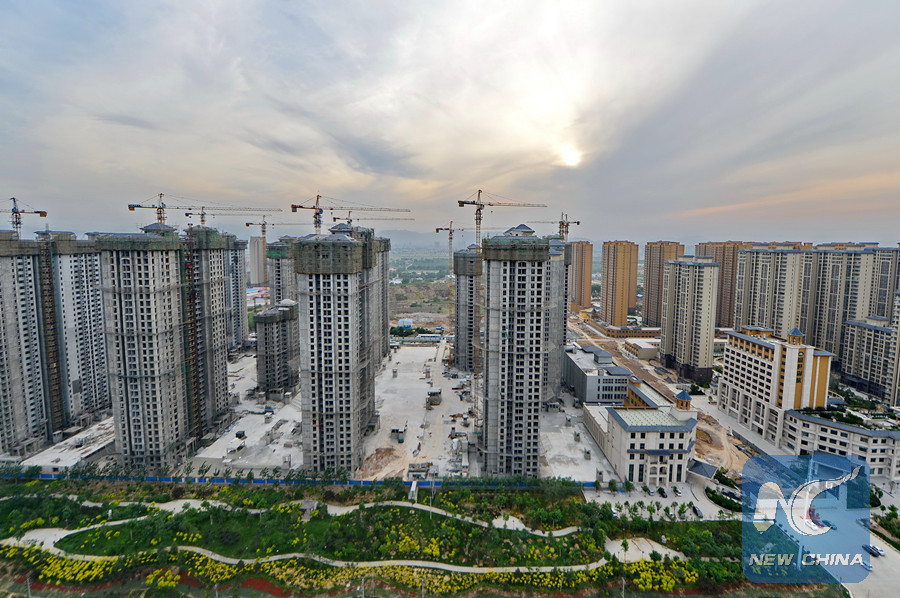Soaring rents put heavy burden on tenants
 0 Comment(s)
0 Comment(s) Print
Print E-mail China Daily, August 20, 2018
E-mail China Daily, August 20, 2018

Rising housing rents in major cities in China put a heavy financial burden on tenants, especially low- and middle-income people.
According to data from CITIC Securities, 13 major cities have seen house rents increase by over 20 percent in the past year, with the city of Chengdu topping the list, with a price growth of 31 percent.
Beijing has the highest housing rent, where a tenant pays an average of 92 yuan ($13.4) per square meter per month, a rise of 22 percent year-on-year.
Property market analyst Chen Lei told Thinker, a think-tank branch of Xinhuanet.com, that soaring rental costs are partly attributed to the growing demand for housing as new graduates flock into the market, and also a result of cities' crackdowns on irregularities in the apartment rental market, such as demolishing those with safety hazards and ordering a halt to group renting.
Some experts said competition among real estate agencies to grab larger shares in the housing rental market is also a major factor behind the soaring rentals.
Hu Jinghui, former deputy chief of real estate agency 5i5j, said apartment rental platform operators, such as Ziroom and Danke, have scrambled for rental properties from owners at prices 20 to 40 percent higher than normal market prices, which drove up the rental prices.
However, Zhang Dawei, the chief analyst at Centaline Property Agency, said the primary reason behind the rental hikes is the disproportionately low rent-price ratio of China's housing market.
The rent-price ratio is an international criterion in evaluating a city's property market, and predicts the payback period of property investment. A ratio between 1:200 and 1:300 would signal a healthy market.
Beijing features a rent-price ratio of less than 1:500, which means the owner has to collect rents for 500 months, or more than 40 years, to recover the investment in the property.
Zhang said the rent-price ratios in first-tier cities have remained at low levels for a long time because many property owners bought the houses as a means of investment and did not expect to profit on a lease.
But the trend reversed recently, as the country has taken tougher lines on housing speculation and is determined to nurture the housing rental market. As a result, many property speculators now turn to rentals as an important source of revenue.
Tenants have felt the pinch from the rent hikes.
Guo Qingbin, an employee for a charity consultancy agency in Beijing, said the monthly rental of his apartment increased from 8,000 yuan a month to 9,000 yuan as he renewed the lease contract recently.
Guo lives in a three-bedroom house that has 80 square meters in the downtown Chaoyang district. He said the rental accounts for almost half of his income.
Zhang Wenfang, a fresh graduate of the University of International Business and Economics, said she shares a flat with two other tenants in the city's suburban Tongzhou district. The one bedroom she occupies costs her about 1,700 yuan a month, or one-third of her salary.
A rent-income ratio of no more than 30 percent is considered affordable for tenants, said property market analyst Hu Jinghui. He said in reality, however, many residents in Beijing pay nearly half of their monthly salary on rent, a burden too heavy for them.
Data issued by the China Real Estate Information Corp in June 2017 shows that the ratio of rent to disposable income of Beijing residents was 58 percent. However, another survey conducted by Beijing Statistics Bureau, along with Homelink, suggests the ratio for Beijing residents is only 22.2 percent in 2018.
Rentals constitute a major part of a family's total expenditures, and soaring rental costs risk triggering inflation, said Yang Xianling, research chief of real estate agency Homelink.
He said a stable rental market is significant for the country's urbanization drive, as many migrant workers and new urban residents have low incomes and the rising rents may pose a big obstacle on their way to settling down in cities.
To provide more affordable housing for urban residents, China has taken a series of measures to develop the rental housing market.
In December, the term "long-term housing rental" was advanced for the first time at the Central Economic Work Conference, an annual tone-setting economic meeting. And promoting long-term housing rental was proposed as one of the major tasks to be fulfilled this year.
Last August, the Ministry of Land Resources and the Ministry of Housing and Rural-Urban Development jointly issued a document encouraging the use of collectively owned land to build rental housing in major cities to increase the supply of rental housing and ease the housing shortage in urban areas.
In June, Beijing's housing and rural-urban development authority pledged to build more apartments for blue-collar workers, and a plan issued last April stated that the city would build half a million apartments for rentals in the following five years.






Go to Forum >>0 Comment(s)